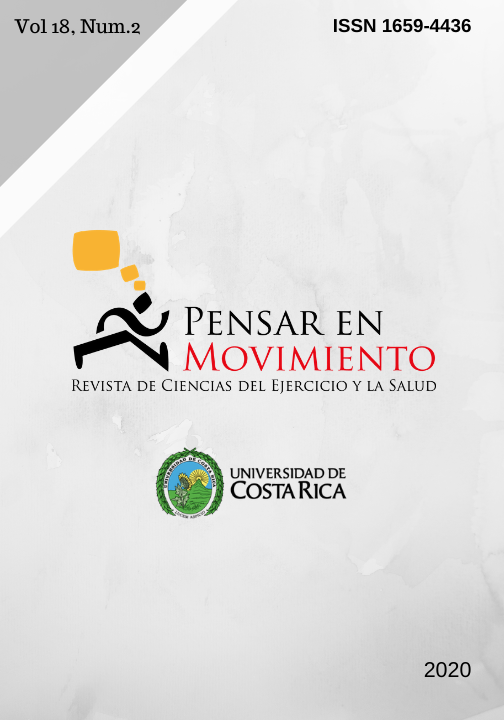Abstract
Swimming is one of the most widely practiced individual sports globally, and its health benefits include a biopsychosocial axis. By interacting with the aquatic environment, the person experiences skills in an environment entirely different from where we live. However, few contributions have been recorded in the scientific literature regarding swimming and its benefits on mental health. There is a need for studies that address the benefits of this practice, training intensities, and ideal volumes, methods used, and weekly frequency that correspond to the psychophysiological responses triggered in children, adults, and seniors.
References
Brum, F., & dos Santos, D.C. (2020). Clima motivacional na natação esportiva: uma revisão narrativa. Revista Brasileira de Psicologia do Esporte, 9(3). doi: https://doi.org/10.31501/rbpe.v9i3.10411
Cordeiro, L. M. S., Rabelo, P. C. R., Moraes, M. M., Teixeira-Coelho, F., Coimbra, C. C., Wanner, S. P., & Soares, D. D. (2017). Physical exercise-induced fatigue: the role of serotonergic and dopaminergic systems. Brazilian Journal of Medical and Biological Research, 50(12). doi: https://doi.org/10.1590/1414-431x20176432
Diamond, A., & Lee, K. (2011). Interventions shown to Aid Executive Function Development in Children 4–12 Years Old. Science, 333(6045), 959–964. doi: https://doi.org/10.1126/science.1204529
Ferreira, R. M., da Costa Alves, W. M., de Lima, T. A., Gison Alves, T. G., Alves Filho, P. A. M., Pantoja Pimentel, C., Sousa, E. C., & Cortinhas-Alves, E. A. (2018). The effect of resistance training on the anxiety symptoms and quality of life in elderly people with Parkinson’s disease: a randomized controlled trial. Arquivos de Neuro-Psiquiatria, 76(8), 499–506. doi: https://doi.org/10.1590/0004-282x20180071
Geamonond, L. (2017). Análises de ações manipulativas em crianças da primeira infância praticantes de natação. Educación Física y Ciencia, 19(1), e02. doi: https://doi.org/10.24215/23142561e021
Geamonond, L. (2019). Dez sessões de iniciação a natação são suficientes para gerar mudanças sobre a atenção concentrada em crianças? Revista Universitaria de la Educación Física y el Deporte, 12(12), 46–52. doi: https://doi.org/10.28997/ruefd.v0i12.7
Kandola, A., Hendrikse, J., Lucassen, P. J., & Yücel, M. (2016). Aerobic Exercise as a Tool to Improve Hippocampal Plasticity and Function in Humans: Practical Implications for Mental Health Treatment. Frontiers in Human Neuroscience, 10. doi: https://doi.org/10.3389/fnhum.2016.00373
Moreira, C. R., Nascimento Junior, J. R. A., Mizoguchi, M. V., Oliveira, D. V., & Vieira, L. F. (2016). Impact of adhesion reasons in the motivational regulation of master swimmers during the season. Desempenho Humano, 18(4), 429–440. doi: https://doi.org/10.5007/1980-0037.2016v18n4p429
Nunes, L. G. (2019). Efeitos de 12 sessões de natação sobre a função neurocognitiva de crianças em idade escolar precoce. Biomotriz, 13(2), 102.
De Oliveira Silva, L. N., de Oliveira, M. F., & Helene, A, F. (2014). Cognição e Esporte. Revista da Biologia, 11(1), 43-49. Recuperado de http://labsol.ib.usp.br/revista/node/159
Da Silva, L. A., Doyenart, R., Henrique Salvan, P., Rodrigues, W., Felipe Lopes, J., Gomes, K., Thirupathi, A., ... & Silveira, P. C. (2019). Swimming training improves mental health parameters, cognition and motor coordination in children with Attention Deficit Hyperactivity Disorder. International Journal of Environmental Health Research, 584-592. doi: https://doi.org/10.1080/09603123.2019.1612041







